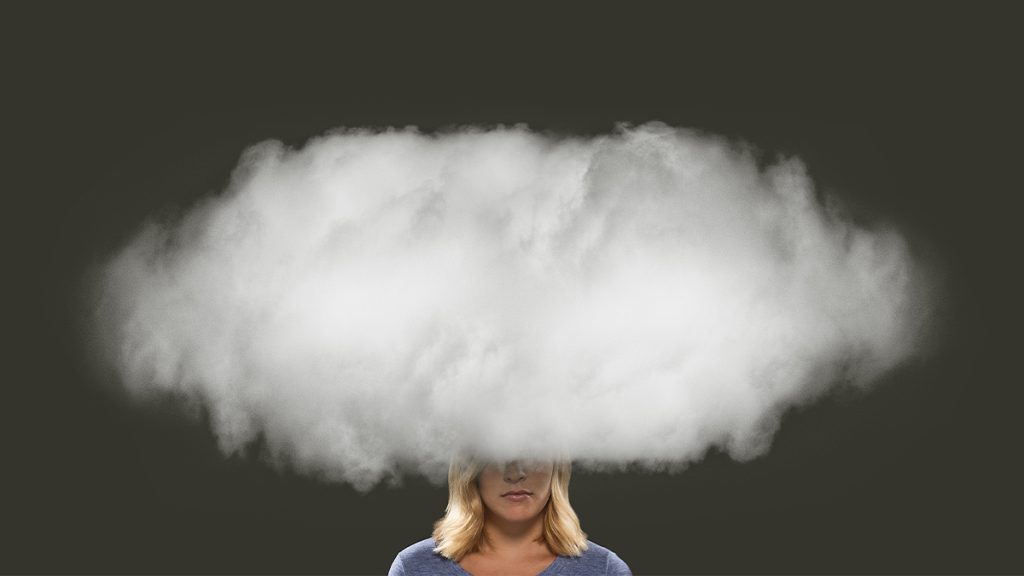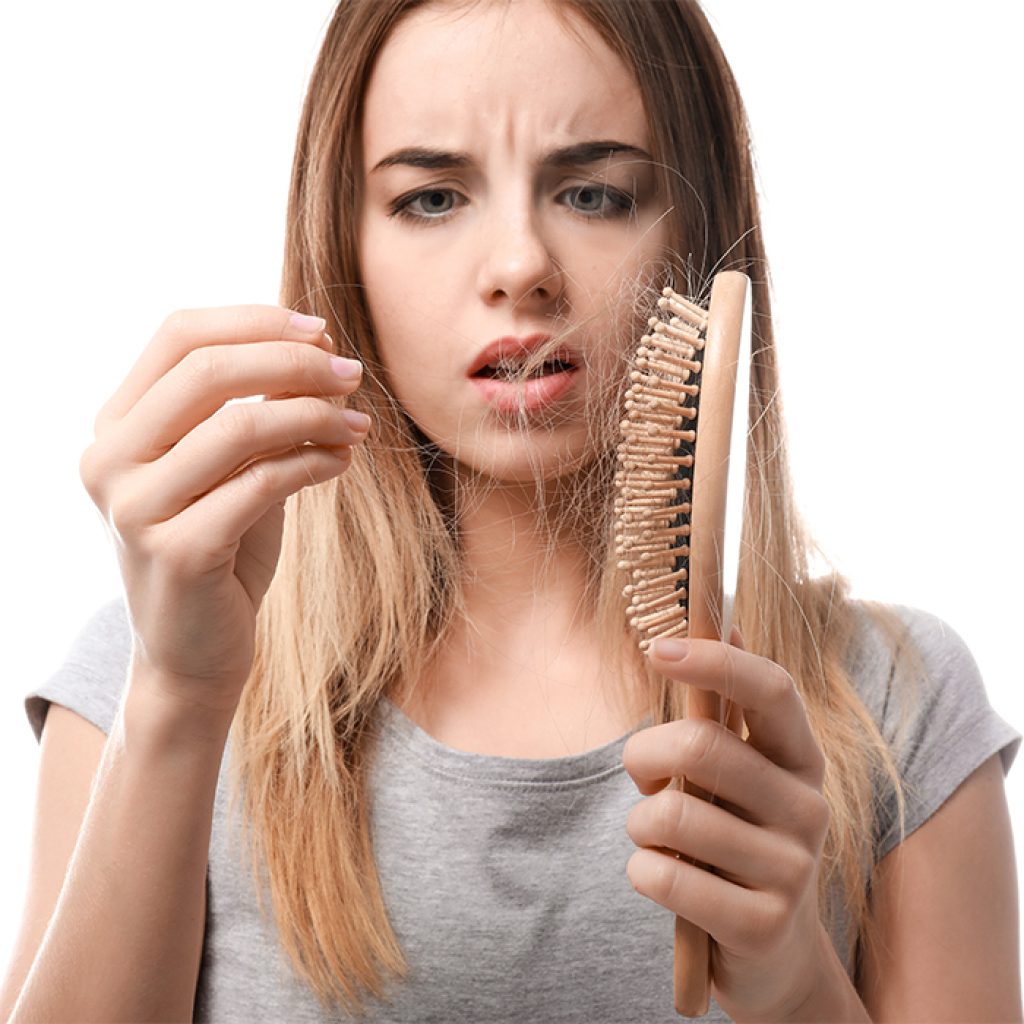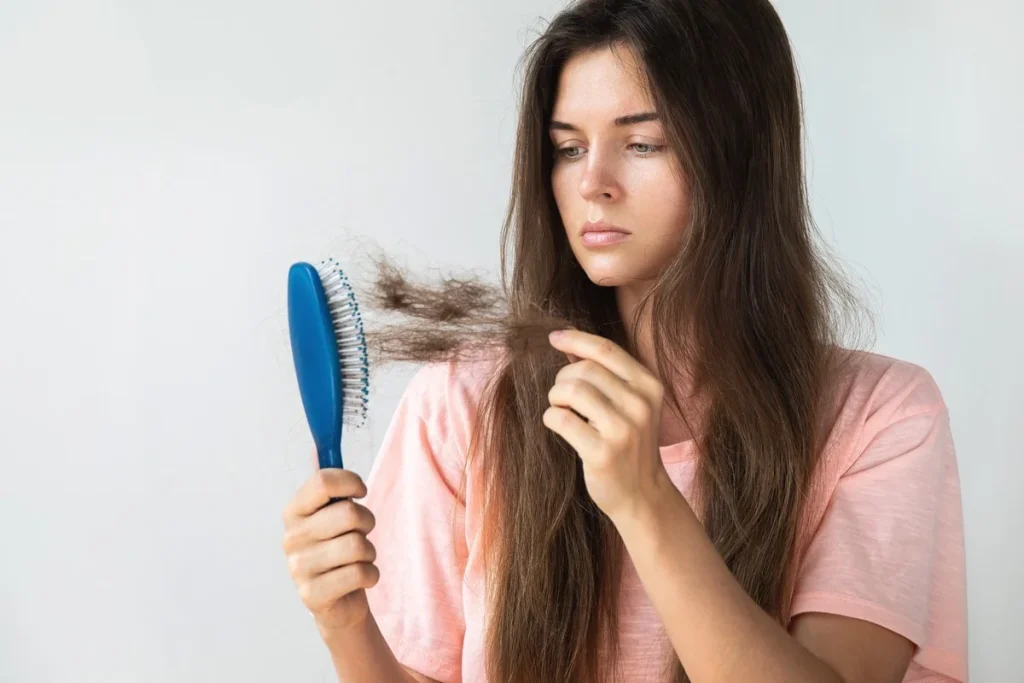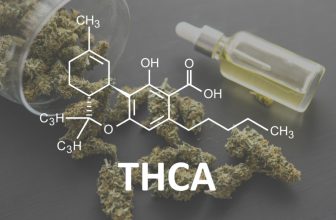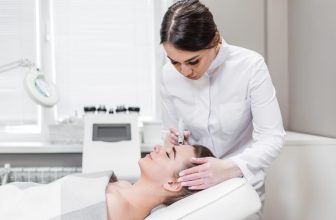Understanding the Impact of Mental Health on Hair Health
In the quest for healthy and beautiful hair, we often focus on external factors such as hair care routines, products, and treatments. However, what we often overlook is the intricate connection between our mental health and the health of our hair. Research has increasingly shown that our thoughts, emotions, and overall mental well-being can significantly impact the condition of our hair.
According to recent studies, chronic stress and mental health issues can contribute to hair problems, including hair loss, thinning, and other conditions. In fact, stress-related hair loss, known as telogen effluvium, affects many people at some point in their lives.
According to Cleveland Clinic, telogen effluvium is a prevalent form of hair loss that often occurs following periods of intense stress or significant changes in the body. It is characterized by noticeable hair thinning, typically concentrated around the crown area. While treatment options are available to address hair loss, it is worth noting that hair typically regrows naturally within three to six months, even without intervention.
In this article, we delve into the fascinating relationship between mental health and hair health.
The Physiology of Hair Growth
Hair growth is a complex physiological phenomenon that occurs in cycles. Each hair strand undergoes a continuous cycle comprising three main phases: anagen (growth phase), catagen (transition phase), and telogen (resting phase).
During the anagen phase, hair follicles produce new cells, leading to hair growth. This phase typically lasts two to six years, and the length of the hair is primarily determined by genetics and individual factors.
The catagen phase is a transitional stage that lasts briefly, signaling the end of active hair growth. Then, the hair follicle shrinks, and the hair stops growing.
The telogen phase is a resting period lasting around two to three months. During this time, the hair follicle remains inactive before eventually shedding the hair strand and preparing for new hair growth.
Various factors, including hormonal changes, genetics, and overall health, influence the precise regulation of these hair growth cycles. Imbalances in these factors, such as those associated with chronic stress or mental health issues, can disrupt the normal hair growth process and lead to hair problems.
Stress and Hair Loss
Stress, a common companion of our modern lives, can affect various aspects of our well-being, including our hair health. When we experience prolonged or intense stress, our bodies can undergo hormonal changes that disrupt the normal hair growth cycle, leading to hair loss.
Research has shown a significant association between stress and hair loss conditions such as telogen effluvium. The excessive release of stress hormones, such as cortisol, can push hair follicles into a premature resting phase (telogen), resulting in hair shedding and thinning.
Moreover, the impact of stress on hair health extends beyond the physiological level. For example, the psychological and emotional burden of stress can contribute to behaviors like hair pulling (trichotillomania), further exacerbating hair loss.
Recently, social media platforms like Instagram have come under scrutiny for their impact on mental health, including hair-related stress. In fact, there has been an ongoing Instagram lawsuit, where the platform is being sued for allegedly fostering an environment that negatively affects users’ mental health and well-being.
Recognizing the correlation between stress and hair loss is crucial in understanding the interplay between mental health and hair health. By managing stress levels through stress reduction techniques, self-care practices, and seeking support when needed, we can not only improve our mental well-being but also promote healthier hair growth.
Trichotillomania: The Compulsive Hair-Pulling Disorder
Trichotillomania (TTM), the compulsive hair-pulling disorder, is a mental health condition that can significantly impact hair health. Individuals with TTM experience an irresistible urge to pull out their hair, leading to noticeable hair loss and, in severe cases, even bald patches.
According to a study published on the ADAA (Anxiety and Depression Association of America) website, it is estimated that TTM affects many individuals in the United States. The study suggests that between 5-10 million Americans experience TTM, with a higher prevalence observed among women than men.
Furthermore, research conducted among college students indicates that approximately 6 out of every 1000 individuals may develop Trichotillomania during their lifetime. It often emerges during adolescence or early adulthood and can persist throughout one’s lifetime if left untreated.
Trichotillomania is often rooted in underlying psychological factors like anxiety, stress, or emotional distress. For example, the act of pulling out hair can provide a sense of relief or temporary gratification, but it often leads to feelings of shame, guilt, and further exacerbation of anxiety.
In recent years, social media anxiety has emerged as a potential trigger for trichotillomania. The constant exposure to carefully curated images and unrealistic beauty standards on platforms like Instagram can contribute to feelings of inadequacy and self-comparison. In addition, it heightened anxiety and self-consciousness may drive some individuals to engage in hair-pulling behaviors as a coping mechanism.
According to a study featured on the Torhoerman Law website, individuals who restricted their social media usage to just 30 minutes per day reported notable reductions in feelings of loneliness and depression. Conversely, those who continued spending more than two hours daily on social media platforms did not experience similar improvements.
These findings shed light on the potential adverse effects of platforms like Instagram on mental health. It also suggests that excessive screen time and prolonged engagement with social media may contribute to negative psychological outcomes. As such, it becomes crucial for users to be mindful of the potential dangers associated with spending excessive time on these platforms.
Understanding the connection between trichotillomania and mental health is crucial for addressing the underlying issues and seeking appropriate treatment. In addition, cognitive-behavioral therapy (CBT), habit reversal training, and support groups can provide valuable tools for managing trichotillomania and promoting healthier coping mechanisms.
Hair Conditions Exacerbated by Mental Health Issues
Mental health issues can profoundly impact various aspects of our well-being, including the health of our hair. While stress and trichotillomania have been discussed earlier, there are other hair conditions that mental health struggles can exacerbate.
One such condition is alopecia areata, an autoimmune disorder where the immune system mistakenly attacks the hair follicles, resulting in hair loss. Research suggests that psychological stress and emotional distress can trigger or worsen episodes of alopecia areata.
A study published in 2022 by Wiley Online Library revealed a significant association between alopecia areata and depression among adults. The study found that individuals with alopecia areata were 30 to 38% more likely to receive a diagnosis of depression compared to those without the condition.
It is crucial to note that depression does not directly cause alopecia areata, but the impact of living with the disease can lead to depressive symptoms.
Another hair condition influenced by mental health is seborrheic dermatitis, a common scalp condition characterized by redness, flaking, and itching. While the exact cause of seborrheic dermatitis is not fully understood, it is believed that stress and emotional factors can contribute to its development or exacerbation.
A study published in the Marmara Medical Journal found a significant association between stress and the severity of seborrheic dermatitis symptoms.
These findings highlight the intricate connection between mental health and hair conditions. Managing mental health concerns through therapy, stress reduction techniques, and self-care practices can positively impact the overall health of our hair.
Self-Care Practices for Promoting Healthy Hair and Mental Well-being
- Prioritize stress management: Engage in stress-reducing activities such as meditation, deep breathing, or regular physical exercise. Stress can contribute to hair problems, so finding healthy ways to manage it is crucial.
- Adopt a balanced diet: Ensure you get essential nutrients like vitamins, minerals, and proteins through a well-rounded diet. A nourished body promotes healthy hair growth and supports optimal mental health.
- Practice good hair hygiene: Maintain a regular hair care routine that includes gentle cleansing, conditioning, and avoiding excessive heat or chemical treatments. Taking care of your hair can boost your self-confidence and overall well-being.
- Seek professional help: If you’re experiencing significant hair loss or struggling with mental health issues, don’t hesitate to contact healthcare professionals. Dermatologists, therapists, and support groups can provide valuable guidance and support tailored to your specific needs.
Remember, caring for your hair and nurturing your mental well-being go hand in hand.
Conclusion
The intricate relationship between mental health and hair health is undeniable. Our emotional well-being can significantly impact the condition of our hair, while hair-related issues can also affect our mental state. By understanding this connection, we can take proactive steps to support both our hair and mental health.
By embracing a holistic approach that addresses mental and hair health, we can foster a deeper understanding of ourselves and promote overall well-being. So let’s unravel the tangled thoughts surrounding mental health and hair health, promoting self-acceptance, self-care, and a positive relationship with our hair and ourselves.
Related Posts:
- 9 Best Oils for 4c Hair 2024 - Review and Buying Guide
- 12 Best Coconut Oil For Natural Hair Growth 2024 -…
- 8 Best Oils For Low Porosity Hair 2024 - Review &…
- 7 Best Red Hair Dye for Dark Hair 2024 - Top Picks
- Unlocking the Secrets of a Healthy Lifestyle: The…
- 10 Best Almond Oil for Natural Hair 2024 - Top Picks…

